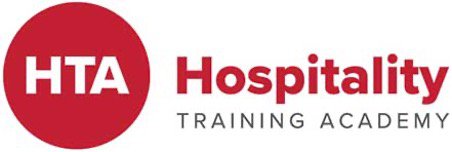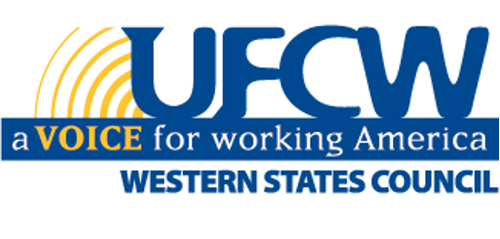

High Road Training Fund
May 6, 2022
About the High Road Training Fund
Overview
Jobs for the Future (JFF), in partnership with the California Workforce Development Board (CWDB), the California Labor and Workforce Development Agency, and the California Governor’s Office of Social Innovation, launched the High Road Training Fund (HRTF) to advance the state’s high road vision for economic equity, job quality, and climate resilience.
Today, the HRTF serves as a public-private partnership and private funding vehicle that High Road Training Partnerships (HRTP) can leverage when their partnership needs supplemental funding to expand. The HRTF’s supplemental funding can be utilized for a wide range of efforts—including capacity building, participant and training costs, wraparound services, and more. The goal is to ensure that the HRTP program has the capacity to promote labor market equity, create opportunities for economic advancement for all workers, provide training to help workers build the skills high road employers look for, and drive long-term environmental sustainability for the state and its communities.
Terms
The HRTF will support HRTPs through three-year grants of up to $500,000. The HRTF will support new and existing HRTPs that have gone through the CWDB application process.
Applying for the Grant
Applications for the HRTF are now open! Full details can be found in the complete application packet. Applications must be submitted digitally. Visit this page for more information.
Please reach out to hrtf@jff.org with any questions.
About the CWDB
The overarching goal of California’s Workforce Development Board is the reorientation and realignment of California’s workforce programs and institutions to help build a dynamic and globally successful state economy that offers residents of all racial, ethnic, and socioeconomic backgrounds opportunities to achieve economic advancement. More information is available here.
About JFF
Jobs for the Future (JFF) drives transformation in the U.S. workforce and education systems to achieve equitable economic advancement for all. www.jff.org.
A Closer Look at the HRTF
The HRTF is a resource that HRTPs can turn to when they can’t use public dollars to meet their operational and programmatic needs due to limitations on the use of public funds or because waiting for the receipt of public funding would lead to significant delays. The supplemental funding that the HRTF provides can be utilized for a wide range of efforts—including ideation, innovation, and the growth and expansion of HRTPs. Moreover, the HRTF can ensure that HTRPs have the capacity to address systemic barriers that have prevented people in low-wage occupations from pursuing quality jobs that offer not only good pay and benefits but also stability, flexibility, autonomy, and equitable opportunities for economic advancement.
Here are a few examples of the challenges that HRTPs can address with HRTF funds:
- Unforeseen Costs: It’s not uncommon for High Road Partnerships to run into unexpected expenses (higher-than-anticipated administrative costs, for example). When this happens, there are limitations on how they can use public funding to cover the increased costs, so their only option may be to amend their budgets and reallocate funds originally earmarked for other uses.
- Immediate Deployment Needs: The public funding process takes significant time. Partnerships have told us that it can take anywhere from six to 12 months from application to receipt of funds. The HRTF can provide quicker access to funds to fill in the gaps.
- Public Spending Limitations: HRTPs receive funding through a variety of public sources, and each has its own rules and regulations about how the money can be used.
Created to address these challenges, the HRTF is positioned to help expand the capacity of the California workforce development system by providing capital for emerging and expanding HRTPs. It will support initiatives that complement the programmatic work that the public funding supports.
The HRTF can support efforts across the following areas:
Infrastructure: Partnerships require financial assistance for building and sustaining the infrastructure that supports their projects. They can tap into HRTF resources for needs such as these:
- Seed capital
- Organizational capacity
Program and Participant Support: As partnerships grow, they may need to consider offering program participants wraparound supports or comprehensive services as part of their efforts to achieve programmatic goals. They can turn to HRTF funds for help in areas such as these:
- Supportive services
- Program delivery
Sustainability and Scalability: The core goal of High Road partnerships is to create sustainable pathways to quality jobs in regional economies. As they work to fulfill that mission, they can draw on HRTF financing to support their efforts in areas such as these:
- Stabilization services
- Policy advocacy
HRTF Partners
Thank you to our partners!
- California Workforce Development Board
- California Governor’s Office of Social Innovation
- California Labor and Workforce Development Agency
- UC Berkeley Labor Center
- UCLA Labor Center
- Social Policy Research Associates
HRTF Funders
Are you interested in potentially joining these funders? Email us at hrtf@jff.org to learn more.
Meet Our Current Grantees
Cohort 1

The Worker Education and Resource Center (WERC) provides quality workforce development programs in partnership with public service and safety net employers in Los Angeles County.

The Hospitality Training Academy (HTA) is the training arm of the Unite Here Local 11 labor union and its contributing employers. The academy provides the highest level of workforce services, pre-apprenticeship, Registered Apprenticeship, and training programs for new and incumbent workers in the hospitality and food service industry.

The High Road to Electric Bus Manufacturing program and the Miguel Contreras Foundation are developing a training program to prepare the green manufacturing workforce to meet the demand for electric buses in California.

United Food and Commercial Workers International Union (UFCW) WorkForward provides job skills training for workers in grocery retail, cannabis, and other food-related industries to create quality job pathways.
Related Content
